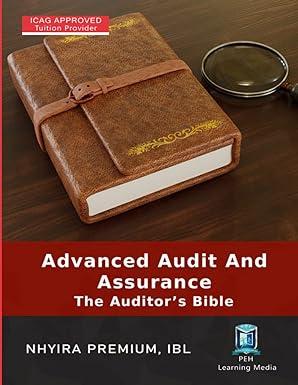Question
A purchased an office building from B for $1,000,000, which represented the building's fair market value. In connection with this purchase, A signed a mortgage
A purchased an office building from B for $1,000,000, which represented the building's fair market value. In connection with this purchase, A signed a mortgage payable to B, for $1,000,000. Sometime later, when the value of the building declined to $800,000 and the outstanding principal on the note was $1,000,000, B reduced the principal amount on the note to $800,000. Assuming A is solvent, how should the $200,000 reduction in the mortgage be treated for tax purposes?
a. The reduction will have no immediate effect for tax purposes. b. The buyer/debtor A must recognize $200,000 as income from the discharge of indebtedness c. The buyer/debtor A will recognize no income but reduce his basis in the property by $200,000. d. The seller/lender B will reduce his selling price by $200,000. e. Both c. and d.
Step by Step Solution
There are 3 Steps involved in it
Step: 1

Get Instant Access to Expert-Tailored Solutions
See step-by-step solutions with expert insights and AI powered tools for academic success
Step: 2

Step: 3

Ace Your Homework with AI
Get the answers you need in no time with our AI-driven, step-by-step assistance
Get Started


